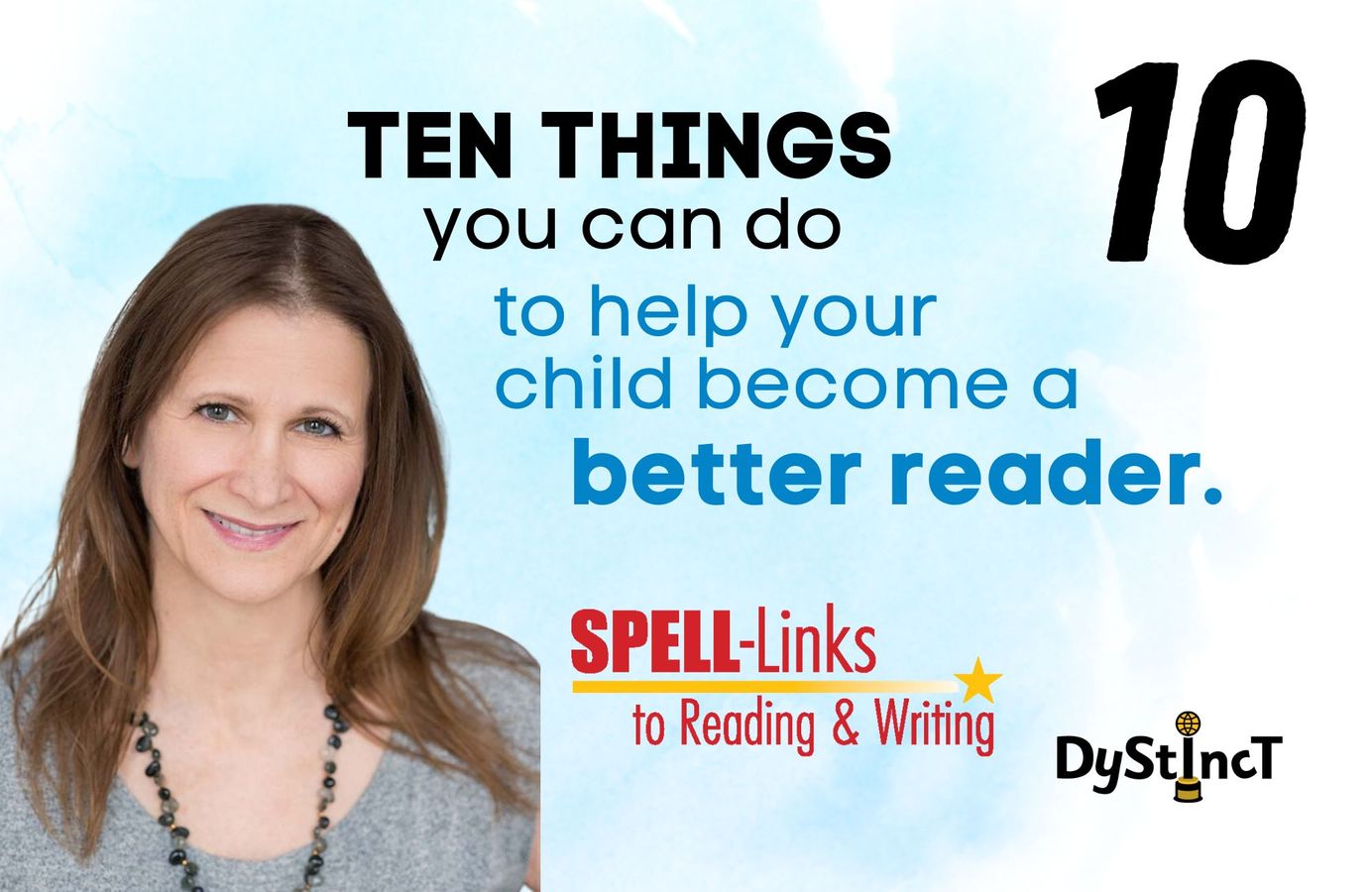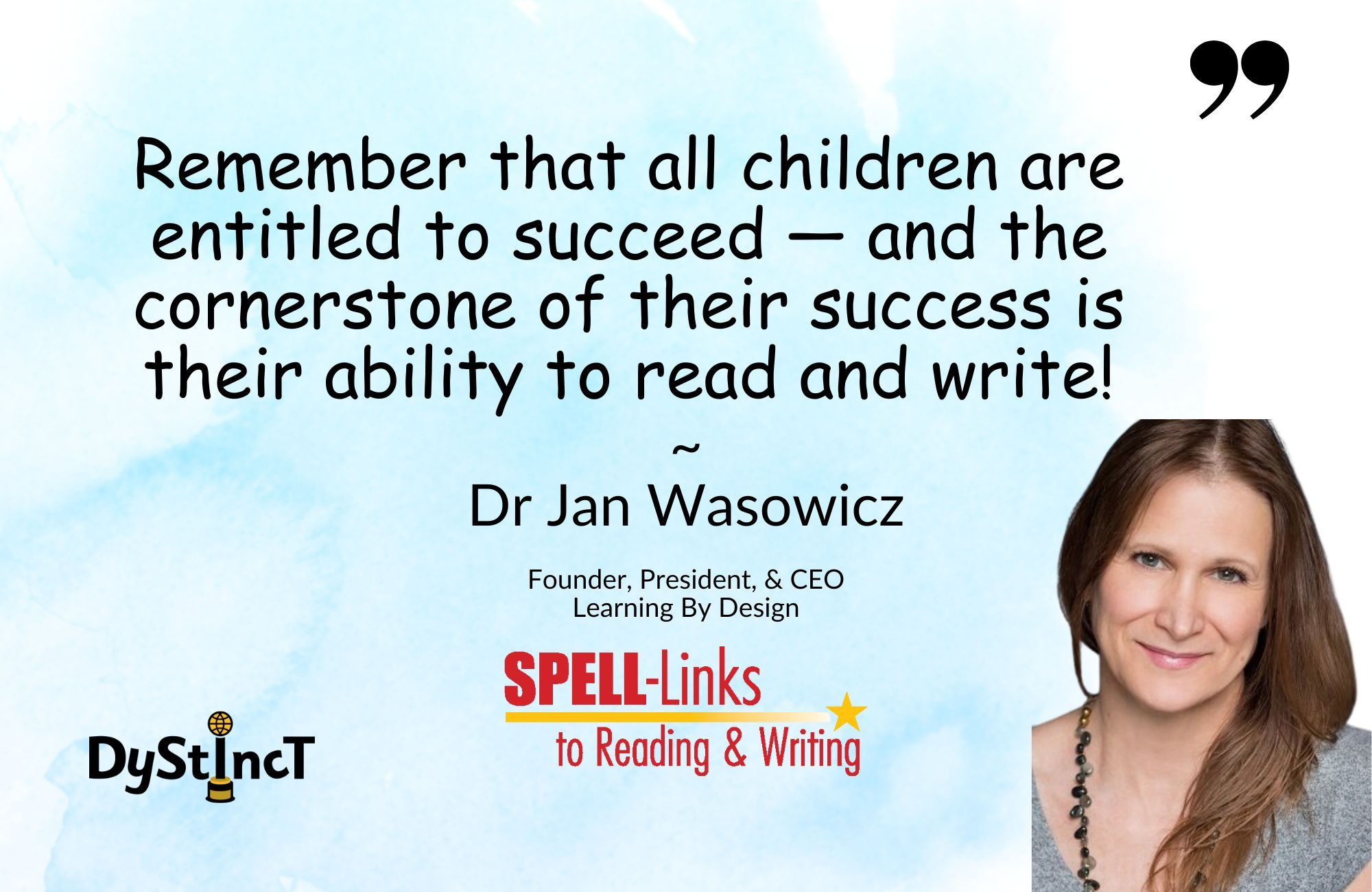
Ten tips for parents to help their children become better readers | Dr Jan Wasowicz
Dr Jan Wasowicz provides some helpful tips for parents to help children on the path to word study success!
Here are some helpful tips that will help set your child on the path to word study success!
- When reading to your child, pointout patterns that occur across words: “Hey! The letter ‘s’ at the end of ‘cats’ changes the meaning of the word from one cat to more than one cat.” Encourage your child to look for other words with the same pattern.
- When your child is reading aloud, encourage her to read as if she were telling the story to a very young child. This will help her to read with natural expression and fluency.
- Do not allow your child to “guess and go”, that is to guess the identity of a word after sounding out only the first letter(s) of the word. When this happens, tell her to look at all the letters in the word.
- When your child says he doesn’t know what a word is, don’t automatically read it for him. Ask him to look for common spelling patterns inside the word he doesn’t know: “Look! The letters at the end of this word (‘stall’) are the same letters at the end of ‘ball’. Use the word ball to read this rhyming word”.
- Model reading of words using slow-motion talking, blending one sound into the next with no pause between sounds, e.g., “thhiiiss” for “this”. Point to the corresponding letters as you say the sounds and pronounce the word naturally when finished.
- Select books that match your child’s reading ability. Reading material that is too hard will cause your child to guess words. If your child habitually selects reading material that is too easy or doesn’t like to read this may be a sign of a reading problem.
- Discourage your child’s focus onreading fast. Many schools regularly measure and emphasize the importance of reading rate, usually measured in number of words read per minute. Instead, encourage your child to focus on reading accurately. As children become more accurate readers, they become more fluent readers.
- If your child habitually skips words or lines of text, encourage her to run an index finger under the line of print when reading.
- When your child needs to read a longword, encourage her to chunk the word into syllables by focusing on vowel letter chunks in the word: “This word (‘computer’) has three chunks of vowel letters. Let’s read one chunk at a time: com-pu-ter”. If necessary, prompt your child to say the word several times, each time stressing a different syllable or changing a vowel sound from long to short (or vice versa) until the word “rings a bell” and makes sense in the context of what is being read.
- Discuss new words and encourage your child to make up sentences using the new words. Using new words indifferent situations throughout the day helps improve a child’s vocabulary, comprehension, and knowledge of the world around him.
You can always get more involved!
Remember that all children are entitled to succeed — and the cornerstone of their success is their ability to read and write!
Dr Jan Wasowicz
Founder, President, & CEO | Learning By Design
LearningByDesign.com | Facebook | Twitter | LinkedIn

Dr. Jan Wasowicz, PhD, CCC-SLP, BCS-CL, has more than 40 years of experience as a language, literacy, and learning specialist. She has worked with students who have language-based reading, writing, and spelling problems in a variety of educational settings, including public schools and private practice.
Dr. Wasowicz is frequently invited to speak about best practices in literacy assessment and instruction at national, state, and local meetings and has taught numerous undergraduate and graduate courses, holding faculty positions at Northwestern University, Elmhurst College, Rush–Presbyterian–St. Luke’s Medical Center, and Governors State University.
She has authored articles appearing in scholarly journals, is the inventor of the original Earobics® software, and is an author of all SPELL-Links products and is the lead moderator of the esteemed SPELLTalk multi-disciplinary professional listserv. Throughout her career she has received numerous awards and patents in recognition of her pioneering work and her contributions to the fields of education, language, learning, and literacy.
Dr. Wasowicz is an ASHA-certified, IL-licensed and FL-licensed speech-language pathologist and an ASHA Board Certified Specialist in Child Language and she holds a professional educator license with multiple endorsements from the State Teacher Certification Board of Illinois. She maintains a private practice in IL via tele-practice and in FL serving students with oral and written language disorders.



